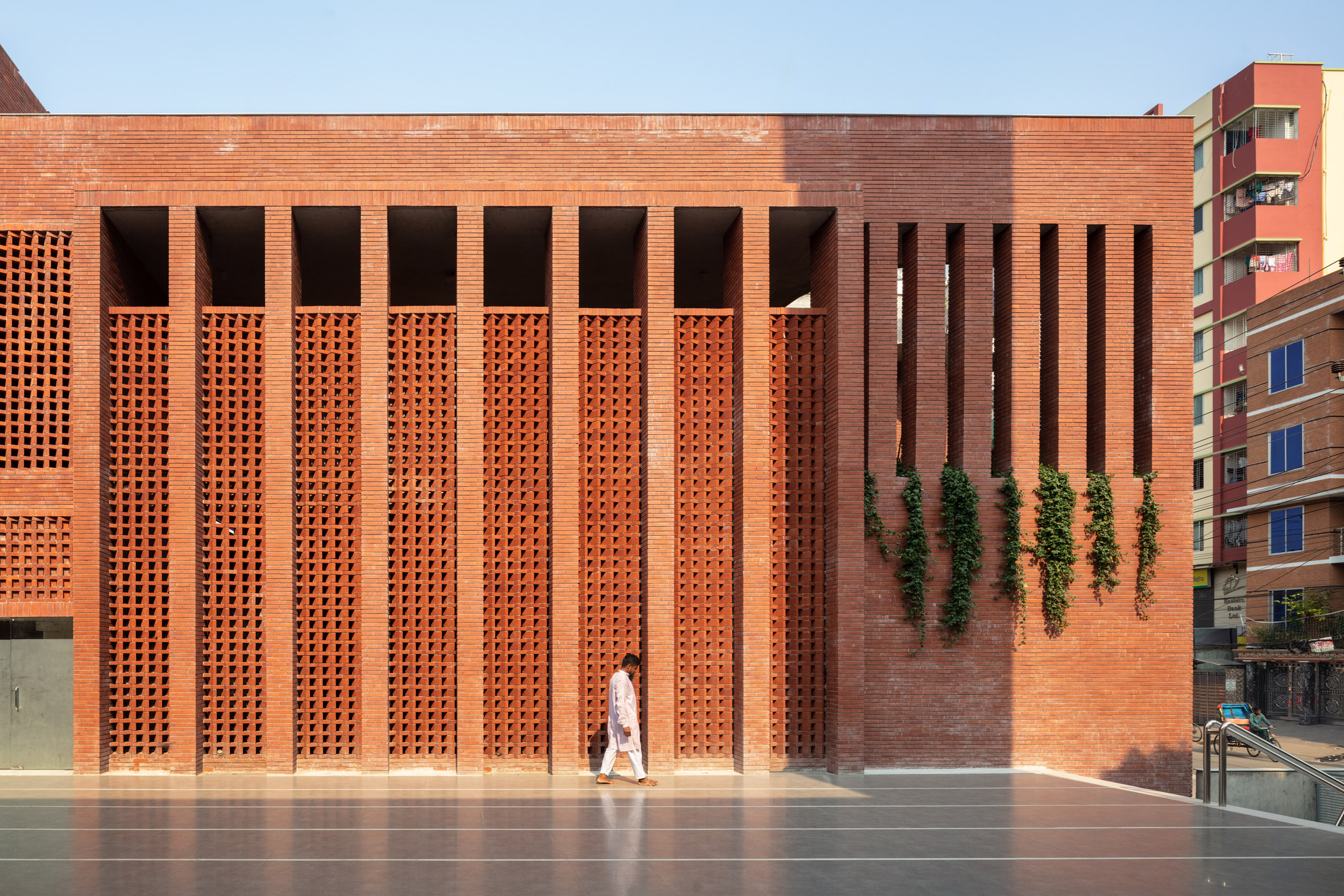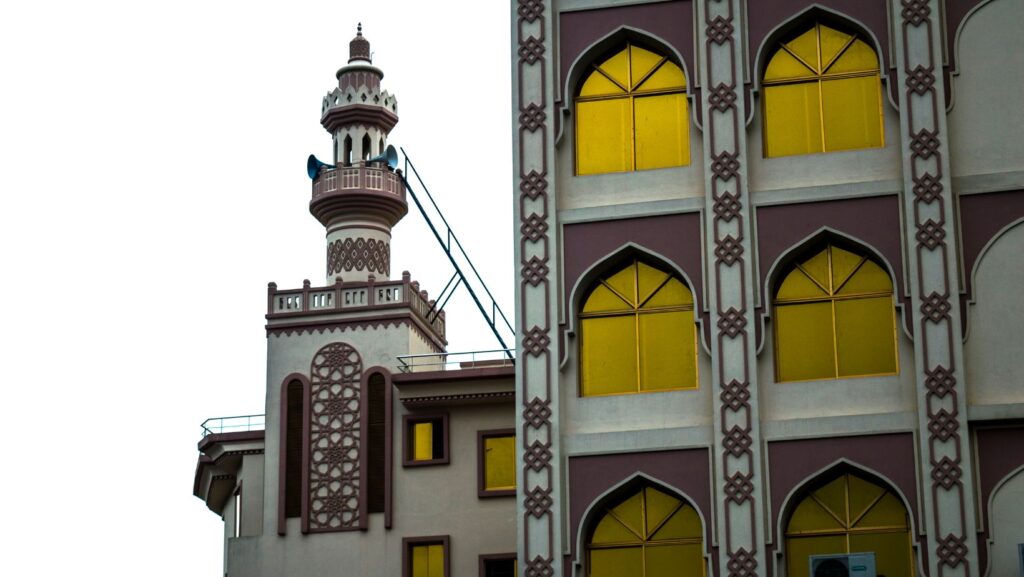Factors Affecting Construction Costs
Factors Affecting Construction Costs When it comes to building any infrastructure, including a mosque, several factors come into play that affect the overall construction costs. In the case of building a mosque in Bangladesh, various elements need to be considered to estimate the expenses accurately. Some of the critical factors that determine the cost of constructing a mosque include the location and site selection, mosque size and design, as well as materials and construction techniques employed. Let’s delve into each of these factors to understand their significance more comprehensively. Location and Site Selection The location and site on which the mosque will be built play a crucial role in determining the construction costs. The chosen location can have an impact on accessibility, availability of utilities, and land prices. Urban areas tend to have higher land costs compared to rural areas, which can significantly influence the overall construction budget. Additionally, the site’s size and topography can affect the construction process, with larger plots potentially requiring more resources and budget allocation. Mosque Size and Design The size and design of the mosque directly influence the overall construction expenses. Larger mosques generally require more materials, increased labor, and longer construction periods, resulting in elevated costs. The architectural intricacies and design aesthetics can also impact construction expenses. Mosques with complex designs, ornate domes, minarets, and extensive decorative details often require specialized craftsmen, premium materials, and meticulous construction techniques, making them more expensive. Materials and Construction Techniques The choice of materials and construction techniques used also significantly affect the total construction costs. Traditional construction materials like bricks, concrete, and steel are commonly used for mosque construction owing to their durability and cost-effectiveness. However, the quality and availability of these materials can vary, causing price fluctuations. Moreover, modern construction techniques, such as precast concrete or modular construction, can expedite the building process but may come at a higher initial expense. To summarize, several factors need to be taken into account when estimating the costs of building a mosque in Bangladesh. The location and site selection, mosque size and design, as well as the materials and construction techniques employed, all play integral roles in shaping the construction budget. Careful consideration of each factor is essential to ensure the successful completion of a mosque construction project within the specified budget.Cost Breakdown Of Mosque Construction
Building a mosque is a significant undertaking that requires careful planning and consideration. One of the key aspects of this process is determining the cost of construction. In Bangladesh, the cost of building a mosque can vary depending on various factors such as size, location, design, and materials used. In this article, we will explore the cost breakdown of mosque construction in Bangladesh, focusing on key areas such as land acquisition and preparation, architectural design and engineering, construction materials, labor and manpower, as well as utilities and infrastructure.Land Acquisition and Preparation
Before construction can begin, acquiring the land for the mosque is the first step. The cost of the land will depend on its size, location, and local market conditions. Additionally, preparation of the land may require tasks such as clearing, leveling, and utility connections. This phase will incur expenses for land purchase and preparation, including legal fees, documentation, site surveys, and any necessary permits.Architectural Design and Engineering
The architectural design and engineering phase of mosque construction involve the expertise of professionals who will design and plan the structure. This includes creating architectural drawings, 3D visualizations, and construction blueprints. The cost of this phase will depend on the complexity of the design, the involvement of architectural consultants, and the level of detail required. Engineering fees for structural, electrical, and plumbing design may also be included in this category.Construction Materials
The choice of construction materials significantly influences the cost of building a mosque. Traditional materials like bricks, concrete, steel, and wood are commonly used. The cost of these materials can vary based on market prices, quality, and availability. Additionally, the design and ornamental details of the mosque may require specialized materials such as stone, marble, or decorative tiles, which could affect the overall construction cost.Labor and Manpower
The labor and manpower required for mosque construction play a significant role in determining the overall cost. Hiring skilled workers, masons, carpenters, and other specialized tradespeople is essential to ensure the quality and integrity of the mosque. The cost of labor may vary depending on the duration of the project, prevailing wages, and availability of skilled workers. It is crucial to allocate a budget for wages, accommodation, and other benefits to attract and retain qualified personnel.Utilities and Infrastructure
To ensure a functioning and comfortable mosque, utilities and infrastructure must be considered. This includes electrical wiring, plumbing, HVAC systems, lighting, and sound equipment. The cost of utilities and infrastructure will depend on the size of the mosque and the desired amenities. Additionally, accessibility features such as ramps, elevators, and parking facilities should be included in the budget if required. Building a mosque in Bangladesh involves careful planning and consideration of various cost factors. From land acquisition to architectural design, construction materials, labor, and utilities, each aspect contributes to the overall cost. By understanding these cost breakdowns, mosque committees and donors can effectively plan and budget for the construction process.Funding Options For Mosque Construction
Building a mosque requires a significant amount of funding, and the cost can vary depending on various factors such as size, location, materials used, and additional facilities. In Bangladesh, where mosques play a crucial role in the religious and social fabric of the community, securing the necessary funds for mosque construction is essential. To meet these financial requirements, various funding options are available, including mosque committee fundraising, donations from the local community, government grants and subsidies, and international aid and organization funding.Mosque Committee Fundraising
Mosque committees play a vital role in overseeing the construction and maintenance of mosques. They often take the initiative to organize fundraising events and activities to generate funds. These fundraising efforts may include:- Organizing local charity events such as bazaars, auctions, or cultural shows
- Encouraging community members to contribute a fixed amount periodically
- Seeking sponsorships from local businesses and organizations
- Establishing a mosque development fund where individuals can make regular contributions
Donations from the Local Community
The local community plays a crucial role in funding mosque construction projects. In Bangladesh, where religion holds immense importance, individuals are often eager to contribute to such endeavors. To facilitate donations, mosque committees often set up designated channels for community members to make their contributions. These may include:- Collection boxes at mosques
- Bank accounts specifically created for mosque construction donations
- Online platforms for easy and convenient donation transfers
Government Grants and Subsidies
The government of Bangladesh is dedicated to promoting religious harmony and supporting the construction of mosques. As a result, various grants and subsidies are available for mosque construction projects. Mosque committees can apply for these financial aids through the appropriate government departments or agencies. The availability and eligibility criteria for these grants may vary, but they often require the committee to provide details about the project, including its purpose, location, and estimated costs.International Aid and Organization Funding
In addition to local sources, mosques in Bangladesh can also secure funding from international aid organizations. These organizations, dedicated to supporting religious institutions and community development, collaborate with mosque committees to provide financial assistance. Funding options available through international aid and organizations can vary, ranging from direct grants to partnerships and funding for specific aspects of construction or facility development.Example: Islamic Relief Bangladesh, an international aid organization, has been actively supporting mosque construction projects in Bangladesh through their Mosque Development Program.By tapping into international aid and organization funding, mosque committees can access resources that might not be available locally, ensuring the successful completion of their construction projects.
Case Studies Of Mosque Construction Projects In Bangladesh
Building a mosque in Bangladesh is a significant undertaking, both in terms of spirituality and practicality. With a rich Islamic heritage, Bangladesh has seen numerous mosque construction projects throughout the years, each offering valuable insights and lessons for future endeavors.Successful mosque construction projects
Several mosques in Bangladesh serve as shining examples of successful construction projects. These mosques have not only become landmarks but have also become centers for religious and social activities within their communities. One notable example is the Baitul Mukarram National Mosque in Dhaka, the largest mosque in Bangladesh. This grand structure was constructed in 1960 and has since become an iconic symbol of Islamic heritage. It can accommodate up to 30,000 worshippers and is a testament to the impeccable craftsmanship and meticulous planning involved in its construction. Another success story is the Sixty Dome Mosque in Bagerhat. Built in the 15th century, this UNESCO World Heritage Site showcases the architectural brilliance of the Sultanate period. The mosque’s sixty domes and intricately designed terracotta ornamentation stand as a testament to the skilled craftsmen of that era.Challenges faced during construction
While successful mosque construction projects are awe-inspiring, they were not without their fair share of challenges. Building a mosque is a complex task that requires careful consideration of various factors, including funding, location, design, and community involvement. One major challenge faced during construction is ensuring adequate financial resources. Mosques are often funded by donations, and acquiring sufficient funds for large-scale projects can be daunting. To overcome this challenge, some mosque committees have adopted innovative fundraising strategies, such as crowdfunding campaigns and collaborations with philanthropic organizations. Another significant challenge is acquiring suitable land for mosque construction. Rapid urbanization and land scarcity pose obstacles in finding appropriate spaces for constructing mosques. Municipal regulations and community concerns regarding noise pollution and traffic management must also be addressed during the planning process.Lessons learned
Through the experiences of past mosque construction projects, valuable lessons have been learned to ensure smoother future undertakings. – Adequate financial planning and resource management are crucial. Establishing a robust fundraising system and transparent financial governance helps maintain project viability and prevents delays. – Engaging with the local community and obtaining their support early on is essential. Community involvement fosters a sense of ownership and shared responsibility, making the project more resilient to potential challenges. – Incorporating sustainable design and construction practices is vital. Emphasizing energy efficiency, environmental friendliness, and the use of locally sourced materials can help reduce costs and minimize the mosque’s ecological footprint. By learning from successful mosque construction projects and understanding the challenges faced, future mosque builders in Bangladesh can embark upon their endeavors armed with knowledge and a greater chance of success.Hiring Professionals For Mosque Construction
When it comes to building a mosque in Bangladesh, hiring professionals is crucial for ensuring the success and quality of the project. Several key professionals are involved in mosque construction, including architects and designers, construction contractors and project managers, and legal experts who handle the regulatory requirements.
1. Architects and Designers
An architect and designer play a vital role in bringing the vision of a mosque to life. As experts in their field, they possess the necessary knowledge and skills to design a mosque that meets both functional and aesthetic requirements. Architects carefully consider the space, layout, and aesthetics to create a design that reflects the cultural and religious significance of the mosque.2. Construction Contractors and Project Managers
Construction contractors and project managers are responsible for the physical execution and management of mosque construction projects. They are well-versed in the construction process, ensuring that the project runs smoothly and efficiently. From preparing the site to managing subcontractors and overseeing the construction timeline, these professionals ensure that the mosque is built according to the approved design and within the specified budget constraints.3. Legal and Regulatory Requirements
Building a mosque involves complying with various legal and regulatory requirements. This includes obtaining necessary permits and approvals, adhering to building codes, and ensuring compliance with zoning and land use regulations. Legal experts who specialize in this area can guide mosque construction projects through the complex web of regulations, helping to prevent potential delays or legal issues. In conclusion, hiring professionals for mosque construction is a crucial step in ensuring that the project is completed successfully, meeting the desired vision and complying with relevant legal and regulatory requirements. Architects and designers shape the physical form and aesthetics of the mosque, while construction contractors and project managers handle the execution and management of the construction process. Legal experts navigate the complex regulatory landscape, ensuring compliance and avoiding potential legal hurdles.Steps Involved In Mosque Construction
Building a mosque in Bangladesh requires careful planning and adherence to a set of specific steps. From the initial planning and feasibility study to the final inspection and handover, each phase of the construction process plays a crucial role in ensuring the successful completion of a mosque. Below, we outline the key steps involved in mosque construction:
Planning and feasibility study
Before embarking on the construction of a mosque, it is essential to conduct a comprehensive planning and feasibility study. This step involves assessing various factors such as the site location, budget, size requirements, and community needs. The feasibility study helps determine the viability of the project and ensures that the mosque aligns with the community’s vision and requirements.Mosque design and approval
Once the planning and feasibility study are complete, the next step is to design the mosque. This stage involves collaborating with architects and designers to conceptualize the mosque’s layout, aesthetics, and functionality. Detailed architectural drawings are created, taking into account prayer halls, ablution areas, minarets, domes, and other essential features. Obtaining approval from the appropriate authorities, such as local governing bodies or the mosque committee, is also an essential part of this step.Obtaining necessary permits
Before commencing construction, it is imperative to obtain the necessary permits from the local authorities. These permits may include building permits, environmental clearances, and any other legal requirements specific to the location. Adhering to the regulatory guidelines helps ensure the construction proceeds smoothly and without any legal complications.Construction timeline and scheduling
With the necessary permits in hand, construction can begin according to a predetermined timeline and schedule. This step involves procuring building materials, hiring skilled labor, and overseeing the overall construction process. Regular monitoring and evaluation are essential to ensure that the project is on track and any issues are addressed promptly.Final inspection and handover
Once construction is complete, a final inspection is conducted to ensure the mosque meets the required standards and specifications. This inspection involves checking the structural integrity, electrical and plumbing systems, and overall safety measures. Following the successful inspection, the mosque is handed over to the community for its intended use, marking the successful completion of the construction process. In conclusion, the construction of a mosque in Bangladesh encompasses several important steps, including planning and feasibility study, mosque design and approval, obtaining necessary permits, construction timeline and scheduling, and final inspection and handover. By following a systematic approach and adhering to the regulations, a mosque can be built with attention to detail and in alignment with the community’s needs and aspirations.Cost-Saving Measures In Mosque Construction
When it comes to building a mosque in Bangladesh, one of the primary considerations is the cost. However, it is important to ensure that cost-saving measures do not compromise the quality and integrity of the project. By implementing strategic approaches such as value engineering, using sustainable and locally sourced materials, as well as efficient space planning and design, the construction of a mosque can be both affordable and sustainable. Let’s explore these cost-saving measures in detail:Value Engineering and Cost Optimization
Value engineering is an essential aspect of mosque construction that involves analyzing the project’s components and functionalities to find cost-effective alternatives. By conducting a thorough evaluation, engineers and architects can identify areas where cost savings can be achieved without compromising the structural integrity or aesthetic appeal of the mosque. Some cost-saving techniques include:- Optimizing the structural design to reduce material usage while maintaining the required strength and stability.
- Exploring alternative construction methods that require less labor and time, thus reducing overall costs.
- Using technology to streamline the construction process, improve efficiency, and minimize waste.
Using Sustainable and Locally Sourced Materials
To minimize the environmental impact and reduce expenses, it is advisable to use sustainable and locally sourced materials in mosque construction. By using materials that are readily available in the region, transportation costs can be significantly reduced. Additionally, locally sourced materials support the local economy and promote the use of renewable resources. Some sustainable materials that can be considered include:- Bamboo: A sturdy and renewable material that is abundantly available in Bangladesh.
- Recycled materials: Utilizing recycled bricks, tiles, or other materials can help reduce costs while promoting environmental responsibility.
- Timber from sustainable forests: Choosing timber from responsibly managed forests ensures a sustainable source of building materials.
Efficient Space Planning and Design
Efficient space planning and design are crucial in optimizing the use of available resources and minimizing unnecessary expenses. By strategically planning the interior layout and ensuring efficient utilization of space, construction costs can be reduced considerably. Some considerations for efficient space planning and design include:- Maximizing natural lighting and ventilation to reduce the need for artificial lighting and air conditioning.
- Designing multifunctional spaces that can serve multiple purposes, such as prayer halls that can also be used for community gatherings.
- Implementing energy-efficient fixtures and appliances to reduce electricity consumption.





What i do not understood is in truth how you are not actually a lot more smartly-liked than you may be now. You are very intelligent. You realize therefore significantly in the case of this topic, produced me individually imagine it from numerous numerous angles. Its like men and women don’t seem to be fascinated until it is one thing to do with Woman gaga! Your own stuffs nice. All the time care for it up!